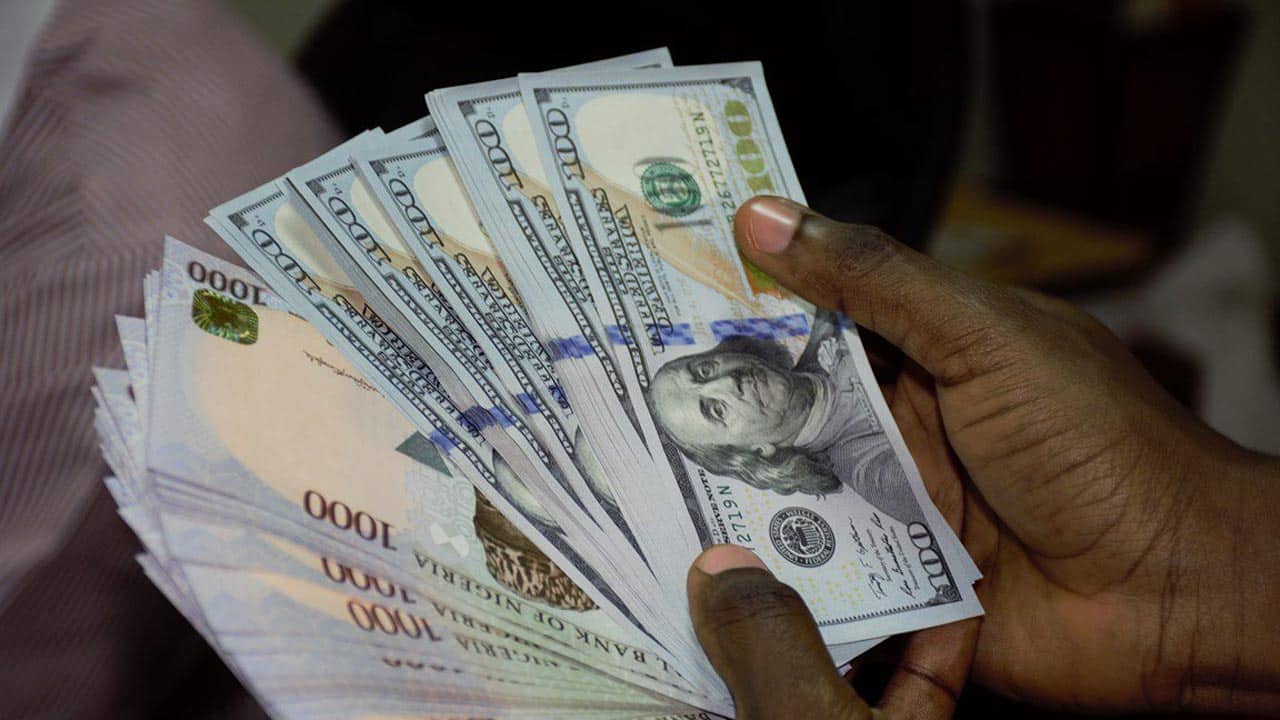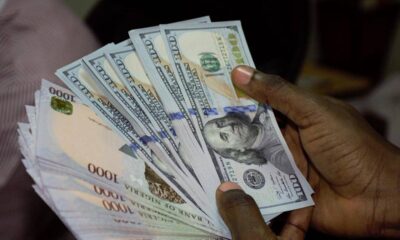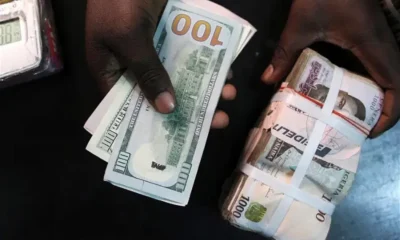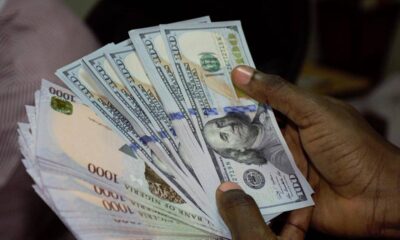Business
Naira Drops Over N100 Against Dollar At Official Rate Despite Slower Inflation

The Naira lost over N100 against the U.S. dollar at the official rate, even though inflation slowed down in August. Data from the Nigerian Autonomous Foreign Exchange Market (NAFEM) showed that the Naira was traded at N1,656 per dollar, up from N1,546 per dollar on Monday.
In the parallel market, the Naira gained slightly, trading at N1,660 per dollar compared to the previous rate of N1,665 per dollar.
This decrease in inflation has been noted for two consecutive months, mainly due to lower food prices during the harvest season. According to the Nigerian Bureau of Statistics (NBS), the headline inflation rate for August was 32.15%, down from 33.40% in July. Food inflation also fell to 37.52% from 39.53% in July.
The U.S. dollar strengthened against most currencies, including the Naira, following higher-than-expected U.S. retail sales data. This data has raised the chance that the Federal Reserve might not be as aggressive in its monetary policy.
The U.S. Dollar Index, which tracks the dollar against six other major currencies, rose slightly on Tuesday. While some market forecasts suggested a 50-basis point rate cut, most analysts expect a smaller 25-basis point cut.
The U.S. job market remains strong, which might lead the Federal Reserve to maintain or increase interest rates, though at a slower pace. The U.S. Commerce Department reported a small 0.1% increase in retail sales for August, which suggests the economy is stabilizing.
Investors are waiting for the Federal Reserve’s decision on interest rates, which will be announced after its meeting today. The last rate cut was in March 2020, during the COVID-19 pandemic.
While Nigeria may see more foreign investment later this year, aggressive rate cuts by the Federal Reserve seem unlikely given the current market situation.
On Tuesday, the dollar index, which measures the dollar against currencies like the yen and euro, increased by 0.199% to 100.90.
Fed funds futures now show a 63% chance of a 50-basis point rate cut, up from 30% a week ago. The likelihood of a 25-basis point cut stands at 37%. This shift comes after recent reports fueled speculation about more aggressive rate cuts.
Additional U.S. economic data released on Wednesday suggest that the Federal Reserve may struggle to implement significant rate cuts. U.S. business inventories grew by 0.3% in July, and factory production improved in August.
Overall, the market anticipates some rate cuts in the coming months, but some analysts caution that expectations might be premature.
Send Us A Press Statement Advertise With Us Contact
And For More Nigerian News Visit GWG.NG







